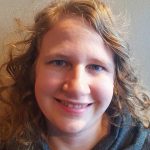
A keynote sets the broader tone for a conference. And then the conference attendees disperse to explore their various specific interests. Day two has been a day of various specific interests. When I took a step back from these sessions to think, it made me worry about the powerful, critical Liberal Arts Conference keynote and the powerful, critical DLF Forum keynote being diluted. But, change may be inspired through keynotes, but that is not where it is made. It is made in the projects and daily work that everyone at this conference is doing at their institutions and sharing with each other in these sessions. It is made through the disparate skills, project, and case-study oriented sessions that make up the bulk of the conference.
[pullquote1 align=”left”]These projects and tools are making change. Not in isolation at our institutions, but in sharing, collaborating, and building incrementally on each other’s work toward a bigger vision.[/pullquote1]
I went to a collection of 7 minute snapshots. I went to a two hour workshop. I actively watched the #dlfforum tag for 140 word snippets of sessions I wished I could have found time for. These projects and tools are making change. Not in isolation at our institutions, but in sharing, collaborating, and building incrementally on each other’s work toward a bigger vision.
I started the day at a series of presentations on research data management systems. It was a mix of metaphors, diagrams, and tips on communication and collaboration. In my work, I focus on history and the humanities. While this does not preclude my faculty needing data management knowledge, it is not central to my mission. That said, the various efforts of CLIR postdoctoral fellows to standardize and support research data management on their campuses was fascinating and informative. Seeing multiple RDMS efforts presented in succession highlighted the role that libraries play as a central social glue on a campus, liaising among all constituent groups – administration, faculty, students, staff and others. Leveraging this role for the support of emerging ways of doing scholarship has definitely been a theme of the whole conference.
The next session I attended looked at the library’s role in student publishing and developing capacity for supporting student digital scholarship. The second half of this session, “The Radical and the Incremental: Expanding the Librarian’s Tool Kit to Prepare the Undergraduate Digital Scholar/Citizen” discussed exactly what I’ve been hoping to sink my teeth into at my institution. How do I train myself and help fellow interested librarians train themselves in order to be able to offer learning opportunities to grow increasingly imperative skills necessary to be digital citizens? [pullquote1 align=”right”]How do I train myself and help fellow interested librarians train themselves in order to be able to offer learning opportunities to grow increasingly imperative skills necessary to be digital citizens? [/pullquote1]As Laurie Allen from Haverford (who quite frankly has been rocking my socks off this entire conference) offered: we train students to write in order to train them to read, so if we want to train them to read the web, we should train them to write for the web.
I spent two hours in a HathiTrust workshop learning how to use HathiTrust Research Center (HTRC) tools. The tools that they are creating are absolutely things that I can bring back to my colleagues and my undergraduates as low-stakes ways to analyze the large corpus of public domain texts that Hathi Trust makes available. There are definitely still some quirks to be worked out, but the proof of concept on this is strong and the potential uses clear and it is exciting to see them being developed and shared by a not-for-profit organization.
That said, I was disappointed to miss what sounded like an amazing session on the University of Virginia Scholars’ Lab’s “Take Back the Archive” project, the “College Women” archives portal, and personal archiving via Zotero. All I have to say is thank goodness for Twitter and community notes. I sadly do not have the full story for any of these, but check those notes and follow #takebackthearchive on Twitter to watch the development of an important project wrestling with how to “archive the silences.”
There were so many interesting projects happening. There are so many intelligent people tackling problems of digital tools and collections in libraries across institutions. It is clear that if we want to move the field in a critical direction as the keynotes have called us to do, we have the personnel power to do so. It can happen through the vibrant discussions happening over excellent food, staring down over the Vancouver Harbor, behind the podiums and in the chairs of an audience. Lots of little various specific sessions that make up a conference, making up the incremental work that combines together toward the radical change we need.
